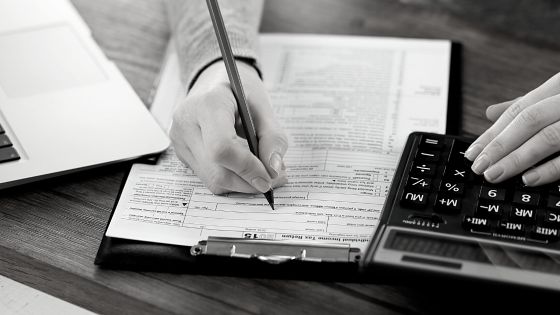It’s that time of year and again getting your tax return out of the way should be a simple process, not a chore. In this article, we’ll guide you through the process of lodging your tax return, with an emphasis on simplifying this annual task.

We’ll explore some practical tips and suggestions to help you understand the deductions you’re entitled to, deal with investments, and more. Remember, starting your tax return shouldn’t be rushed, it’s best to wait until all the necessary information has been received by the Australian Tax Office (ATO).
Understanding Deductions
The first step to a smoother tax return is understanding your deductions. The rule of thumb is that the expense must be related to earning your income. If it’s personal or can be used for other purposes, it’s likely non-deductible. Here are some important points to remember:
- Expense Relevance: The expense should relate to your income-earning process. This means if it’s for personal use, chances are you can’t claim it.
- Check Before Claiming: If you can use the expense for other purposes, check before claiming it.
- Be Aware of Misconceptions: Be careful about claiming something just because everyone else is. A classic example is the ATO’s guidance on laundry expenses for uniforms.
The Truth About Refunds
There’s a common misconception that tax time should always culminate in a sizeable refund, but that isn’t necessarily the case. Understanding what a refund really signifies is crucial to managing your expectations and maintaining a healthy financial perspective.
What Does a Refund Mean?
A tax refund isn’t a bonus or windfall. It essentially means you’ve overpaid on your taxes during the year. The government is simply returning your money that they’ve been holding onto.
Why Your Refund May Be Smaller than Expected
Several factors can contribute to a smaller refund. These could include changes in your income, adjustments to your withholdings, or variation in your eligible tax deductions or credits. For instance, if you’ve been earning additional income from a side hustle or a second job, it could potentially affect your overall tax liability and, by extension, your refund.
When You Might Owe Money
On occasion, you might find that instead of receiving a refund, you owe money to the ATO. This situation could arise if the tax you’ve paid throughout the year (through wage withholding, estimated tax payments, etc.) doesn’t cover the total tax you owe. While this can be a surprise, remember that it’s simply a result of the balance between your tax liability and the taxes you’ve already paid.
Refund Isn’t a Measure of Good Tax Planning
Lastly, it’s crucial to remember that getting a large refund should not be your goal when planning for taxes. A large refund means you’ve essentially given the government an interest-free loan over the year. Instead, good tax planning aims to align your tax payments and your tax liabilities as closely as possible, resulting in either a small refund or a small amount due.
Remember to Declare Your Investments
Crypto Tax
Crypto investments have skyrocketed in recent years. If you’re one of the many who have jumped on this bandwagon, remember to declare these in your tax return.
Seek Advice for Property Ownership
Property ownership and related tax issues are areas the ATO is currently scrutinising. If you own property, it’s advisable to seek professional advice.
Declaring Dividends
If you’ve received dividends from the shares you own, these need to be included in your taxable income. Dividends may also come with franking credits, which you should also declare as they may entitle you to a credit for any tax the company has already paid.
The Myth of the Automatic $300 Claim
Contrary to popular belief, there is no automatic $300 claim with no receipts. To claim up to $300, you must be able to demonstrate that you spent the money on something that justifies a valid claim.
When In Doubt, Ask
The ATO provides excellent Q&As on their website to address common confusions. If you’re unsure about anything, don’t hesitate to ask.
With the right understanding and planning, getting your tax return lodged can be a smooth, simple process. Always remember to keep accurate records, be aware of your entitlements, and wait until all the necessary information has been received by the ATO. Happy tax time!




















